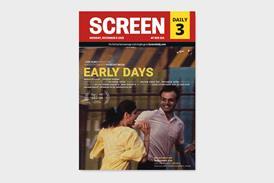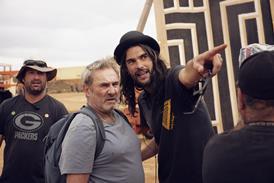The autumn epidemic of films dealing with the US's entanglement in Iraq and Afghanistan has launched dozens of features and op-ed pieces but predictably, most of these were written before many of the films had surfaced. So pundits were limited to commenting on the fact that, whereas most of 1970s Vietnam films (Coming Home, The Deer Hunter, Apocalypse Now) were nurtured in the Hollywood incubator for three or more years after America's traumatic withdrawal, the present Middle East brood are being delivered, as it were, by Caesarean - while the conflict is ongoing, and its outcome still uncertain.
I've now seen five of the dozen or so war-on-terror features that are due to emerge between now and spring 2008: Redacted, In The Valley Of Elah, Rendition, Battle For Haditha and Lions For Lambs. Sure, there are a few more to come - to name just two, Grace Is Gone, starring John Cusack, which Miramax has pushed back to an early December release date in the US, apparently because it is worried about the Iraqi war-film logjam; and Mark Boal's The Hurt Locker, which views the conflict through the eyes of a bomb disposal expert.
War profiteering'
One thing they don't seem to be about is box-office profits - at least not so far. A Mighty Heart, Michael Winterbottom's "thriller-isation" of the abduction and murder of US journalist Daniel Pearl, crept to just $9m in the US following its June release, despite the bait of Angelina Jolie. In The Valley Of Elah, Oscar-winner Paul Haggis' elegiac study of a crime sparked off by post-combat stress, had taken just $6.4m in the four weeks to October 14. In a way, though, the fact that films aren't making money makes the trend even more revealing. When US producers follow a wave against their better financial judgement, you know something really big is going down in the nation's psyche.
Ostensibly, many of these films are designed to stir public opinion in the great tradition of the politically engaged issue movie that has thrown up so many important films, from Twelve Angry Men through to Good Night, And Good Luck. Few of the great Vietnam films fitted into this category - The Deer Hunter, Apocalypse Now, and to a lesser extent Platoon were dark, degraded epics of male heroism veined with irony. They didn't need to cajole, like the present bunch, because they were post-mortems rather than emergency bypass operations.
Brian De Palma's Redacted and Nick Broomfield's Battle For Haditha both deal with brutal crimes perpetrated by US forces in Iraq. Rendition - a tight, intelligent political thriller - focuses on the Machiavellian process of exporting terrorist suspects to prisons in countries where torture is condoned; and In The Valley Of Elah is about the psychological scars of war and the death of an old-fashioned ideal of military pride and dignity.
Perhaps the most revealing of all, though, is the weakest of the five - Robert Redford's Lions For Lambs. Preachy, wordy and confused, the film comes on as a bizarre mix of Wag The Dog and The Green Berets - in other words, it tries to mix a satire of political media spin with a stirring tribute to American military valour under fire.
A question of guilt
It took me a while to work out what was going on with these new war films, but suddenly it clicked: they are, at least in part, attempts to expiate a crushing sense of guilt. I'm not being flippant here: these are important, earnest films, made for important, earnest reasons - but they are also, quite clearly, offerings made by artistic liberal sons to atone for the sins of their authoritarian political fathers.
This is why they may do better internationally than in the US: because overseas audiences may accept them in a fairly uncomplicated way as cultural war reparations. Maybe we should also reflect on why Europe, which is also involved in Iraq and Afghanistan, has yet to start assuaging its own guilt through cinema (sure, Battle For Haditha is directed by a Briton and produced by a UK company, but the atrocity it documents is all-American). Once again, we seem content to let America carry the can.


















No comments yet